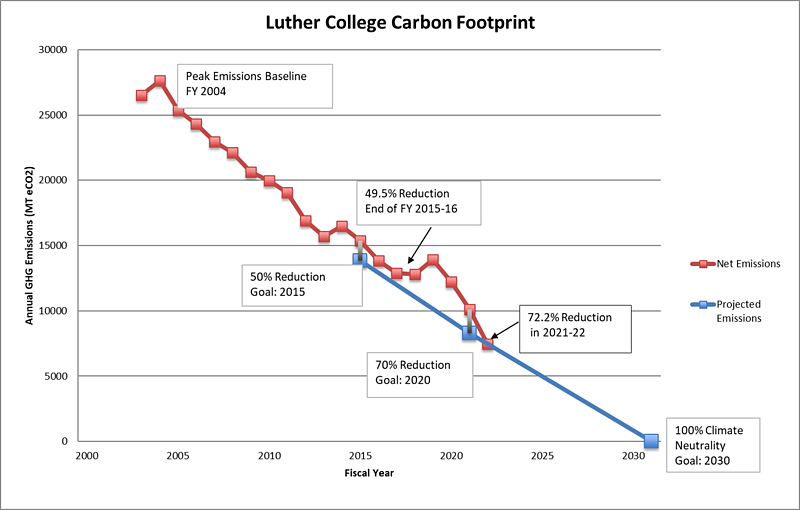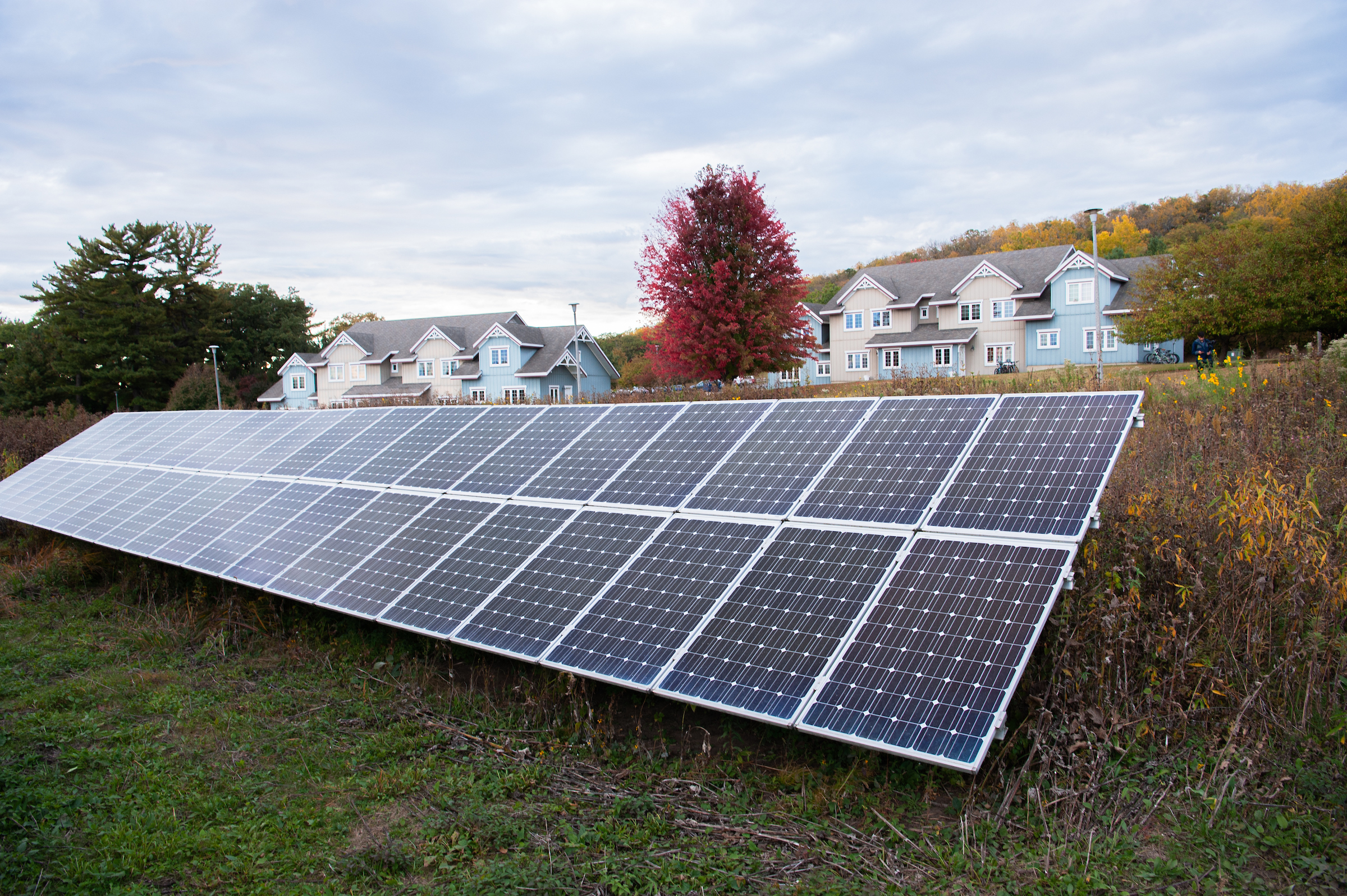Sustainability Projects and Initiatives
Luther College has a deep and lasting commitment to sustainability and has set a carbon neutrality date of 2030.
Luther’s Climate Action Plan
Our goal is to integrate sustainability into all areas of campus life and to make it a central organizing principle for Luther College. The Climate Action Plan lays out some of the ways in which we’ll meet this commitment. The specific initiatives outlined in this document represent our current plans. We are always seeking new ways to
- Reduce carbon emissions
- Increase opportunities for sustainability education
- Model stewardship and sustainability in college operations
- Be a catalyst for change within our region
By achieving these goals, Luther College will improve the education of our students while also addressing the challenges of climate change.
Campus Carbon Footprint

As a charter signatory of the American College and University Presidents Climate Commitment, Luther is obligated to measure its campus carbon footprint. This footprint is produced via
- Direct emissions of greenhouse gases associated with combustion of fossil fuels for heating and transportation
- Indirect emissions associated with electricity purchases
- Other emissions related to solid waste, refrigerants, land use management, air travel, etc.
Luther updates its carbon footprint annually and has reduced its emissions 72.2 percent since 2003.
This reduction has been achieved even while the college has increased the amount of conditioned space 7.7 percent. The vast majority of Luther’s reductions to date are associated with purchased electricity along with major investments in energy efficiency and solar power that have reduced grid purchases 37.8 percent.
Luther College’s goal is to be carbon neutral by 2030.
Major Initiatives to Achieve Carbon Neutrality
Energy Conservation Program
In February 2010, Luther officially adopted an Energy Conservation Program. A $45,000 grant from the Rocky Mountain Institute funded the creation of the program. The creation of the program developed with consultants from Sebesta Blomberg. Through innovative programming related to energy conservation, we hope to reduce energy consumption two percent per year through behavior change and will continue our work on energy efficiency (three percent per year), as well as larger projects like the wind turbine, biomass project and building improvement projects.
Get tips on how to reduce your energy usage
Green Buildings
As a result of signing the American College and University Presidents Climate Commitment (ACUPCC), Luther has committed to all new campus construction being built to at least the U.S. Green Building Council’s LEED silver standard or equivalent. The Green Building Policy was written by the Food, Purchasing, and Waste Task Group.
About LEED
LEED (Leadership in Energy and Environmental Design) is a national rating system for developing high-performance, sustainable buildings. Developed by U.S. Green Building Council, LEED addresses all building types and emphasizes state-of-the-art strategies for sustainable site development, water savings, energy efficiency, materials and resources selection, and indoor environmental quality.
Luther Fleet
The majority of Luther’s passenger fleet vehicles are gasoline-electric hybrid sedans (Honda Civic, Toyota Prius, Ford C-Max). Every year Luther College calculates its carbon footprint, including transportation-related emissions. Moving to hybrid vehicles has cut the passenger fleet’s carbon footprint in half.
Additional info:
- Luther utilizes some electric vehicles in its maintenance fleet.
- Luther recycles all of the cafeteria’s used vegetable oil into biodiesel for use in some of the college’s lawn maintenance vehicles.
Food Education
Throughout the course of the year, Luther offers a wide range of food education classes to members of the campus community. Decorah is situated amidst a richly diverse agricultural landscape and residents have access to an abundance of locally produced seasonal produce. These events are meant to provide a time and space for faculty and staff from different parts of campus to spend time together while learning a new skill and eating something delicious. All participants of the CSA Rebate Program are are offered educational and experiential opportunities to learn more about food and nutrition.

Achieving this milestone puts the college on track to achieve carbon neutrality by 2030.